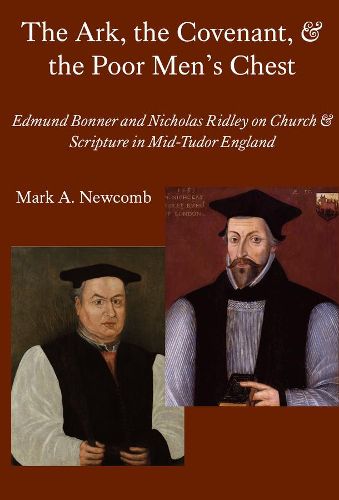Readings Newsletter
Become a Readings Member to make your shopping experience even easier.
Sign in or sign up for free!
You’re not far away from qualifying for FREE standard shipping within Australia
You’ve qualified for FREE standard shipping within Australia
The cart is loading…






What role did Humanism play in the emergence of English Protestantism? This question has remained a live issue for Reformation scholarship over the past four centuries. In The Ark, the Covenant, and the Poor Men’s Chest, the author examines the issue in detail, utilizing categories drawn from the research of John W. O'Malley on the application of different modes of classical rhetoric to biblical interpretation during the Renaissance.
Anyone interested in either the revival of classical learning during the Renaissance or the religious upheaval of the English Reformation will benefit from reading this work. The book’s focus on primary sources from the sixteenth century and the best insights from recent secondary scholarship yields insights that will be of great interest to specialists in the field of Renaissance and Reformation studies. The inclusion of a timeline of major events, a biographical index of major figures, and a glossary of theological terms make this work accessible and helpful for students with varying degrees of familiarity with early modern England.
Comparing the exegetical writings of Erasmus and John Colet, the author illustrates the key differences between Erasmian and Italian Humanism. Erasmus’ reliance upon deliberative oratory for the explication of scripture, and his preoccupation with a Platonic philosophia Christi, result in an oracular Christology, focused narrowly on the speech of Jesus. By contrast, Italian Humanism relies upon epideictic rhetoric, and yields a portrait of Christ that highlights the deeds of the Messiah and the paschal dimensions of His salvific work, as seen in the writings of John Colet. These divergent patterns of biblical interpretation are also characteristic of the writings of the two bishops of London during the Reformation, Edmund Bonner (imprisoned under Edward VI, and returned to his diocese by Mary Tudor), and Nicholas Ridley (assistant and confidant to Thomas Cranmer). Their contrasting approaches to scriptural interpretation suggest that opting for either Italian or Erasmian Humanism may have been decisive, both for Ridley’s Protestantism and Bonner’s Catholicism.
$9.00 standard shipping within Australia
FREE standard shipping within Australia for orders over $100.00
Express & International shipping calculated at checkout
What role did Humanism play in the emergence of English Protestantism? This question has remained a live issue for Reformation scholarship over the past four centuries. In The Ark, the Covenant, and the Poor Men’s Chest, the author examines the issue in detail, utilizing categories drawn from the research of John W. O'Malley on the application of different modes of classical rhetoric to biblical interpretation during the Renaissance.
Anyone interested in either the revival of classical learning during the Renaissance or the religious upheaval of the English Reformation will benefit from reading this work. The book’s focus on primary sources from the sixteenth century and the best insights from recent secondary scholarship yields insights that will be of great interest to specialists in the field of Renaissance and Reformation studies. The inclusion of a timeline of major events, a biographical index of major figures, and a glossary of theological terms make this work accessible and helpful for students with varying degrees of familiarity with early modern England.
Comparing the exegetical writings of Erasmus and John Colet, the author illustrates the key differences between Erasmian and Italian Humanism. Erasmus’ reliance upon deliberative oratory for the explication of scripture, and his preoccupation with a Platonic philosophia Christi, result in an oracular Christology, focused narrowly on the speech of Jesus. By contrast, Italian Humanism relies upon epideictic rhetoric, and yields a portrait of Christ that highlights the deeds of the Messiah and the paschal dimensions of His salvific work, as seen in the writings of John Colet. These divergent patterns of biblical interpretation are also characteristic of the writings of the two bishops of London during the Reformation, Edmund Bonner (imprisoned under Edward VI, and returned to his diocese by Mary Tudor), and Nicholas Ridley (assistant and confidant to Thomas Cranmer). Their contrasting approaches to scriptural interpretation suggest that opting for either Italian or Erasmian Humanism may have been decisive, both for Ridley’s Protestantism and Bonner’s Catholicism.